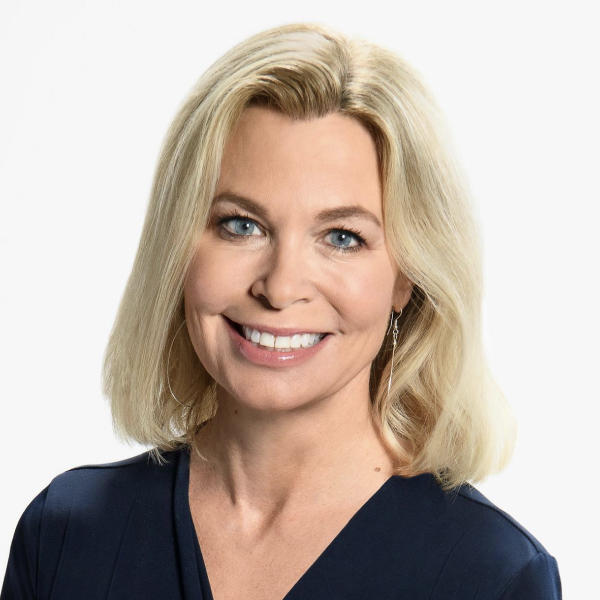Reporter's Notebook: Tracy Smith
I have to admit that before producer Kim Kennedy and I started working on this series, I didn't give much thought to the problem of human trafficking. The Klaas Kids Foundation for missing children calls human trafficking America's "new dirty little secret."
But to me, it seemed like one of those crimes I could distance myself from. Tragic, yes, but far removed from my life here in the United States. It was something that happened overseas, but not here, not in my community, not to U.S. citizens, not to American children.
But when I met Tyamba, all of those assumptions were shattered. Here was a good kid, an American girl with a mom who adores her, who somehow got drawn into the very real world of human trafficking, just miles from where I live.
It started as an all-too-familiar story: Tyamba, a promising, gifted child, started hanging out with the wrong crowd, and ended up running away from home. She met a seemingly kind stranger who promised to take care of her, and ended up forcing her to do things no 13-year-old girl should ever have to contemplate. And as Tyamba was casually traded from pimp to pimp, her mother, who never gave up looking for her, finally tracked her down.
Tyamba is home safe now, still haunted by those months in captivity. As I told her and her mother, no one would blame them if they never wanted to speak of that horrible period in their lives ever again. But instead, they're determined to discuss it, and to wake up people like me, who had no idea that human trafficking could hit so close to home. I'm grateful, and somewhat amazed, by their strength. Tyamba has even told her story to other kids in school.
And there are so many other Tyambas out there.
The State Department estimates that there are 20,000 people trafficked into the U.S. each year. In Florida, we met a handful of them: a pregnant young woman who seemed barely older than a child herself, tears running down her face as she told me how the traffickers abused her; a Haitian woman with a beautiful smile who'd been promised a job as a nanny, and instead was forced to work as a sex slave; a mother whose child had been branded by a trafficker as a sign of ownership, his initials literally carved into the little boy's skin.
We met them through the Florida Coalition Against Human Trafficking, which worked to free each of them and get them into safe homes. But the group is admittedly overwhelmed by the numbers, and it's tough to keep up.
And, as Tyamba's story so startlingly illustrates, this is not just an immigrant problem.
Klaas Kids Foundation, which was started to help families of missing children, is now looking into human trafficking, believing that at least some of the 800,000 American kids who are reported missing each year end up in the arms of traffickers. They say the kids are approached at malls, even at school, by people who know how to prey on their insecurities and promise them an exciting new life.
In Pensacola, we met a young woman named Shauna who was lured into this world by someone she thought was a friend. A girl at school invited her to a sleepover, where she was unwittingly drugged by a man who said he was the girl's father. Shauna was beaten and raped repeatedly, and heard her captors discussing how they planned to sell her for $300,000 (which, sadly, is a high price for a victim of human trafficking -- others are sold for just $10,000) . When investigators put the heat on her traffickers, they let her go. But her traffickers are still out there.
What's amazing about Shauna's story is the way the other girl -- the recruiter -- targeted her from the beginning. The first time they met, Shauna's mom had just dropped her off at school, and it was obvious the two had been fighting. The recruiter saw this, and knew just how to prey upon Shauna, asking her about her problems with her mom, cozying up to her by taking her on shopping trips, luring her into what seemed like a friendship with someone who really understood her. Then, that unbelievable act of betrayal, inviting Shauna to a seemingly innocent sleepover that became anything but.
Doing this series has changed the way I see things in daily life now; from the kids hanging out in the mall, to the new, young immigrant working in a local business, I'm looking for signs of someone involved in human trafficking. I hope that's what this series will do for our audience, too.
The Florida Coalition says most of the tips they get come not from law enforcement, but from neighbors just like you and me. So the more people that understand that this is happening here, not just overseas, but in our neighborhoods, to our kids, the closer we'll come to getting a handle on this horrible crime.
